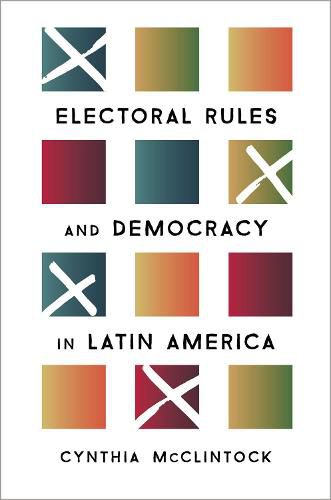Readings Newsletter
Become a Readings Member to make your shopping experience even easier.
Sign in or sign up for free!
You’re not far away from qualifying for FREE standard shipping within Australia
You’ve qualified for FREE standard shipping within Australia
The cart is loading…






During Latin America’s third democratic wave, a majority of countries adopted a runoff rule for the election of the president, effectively dampening plurality voting, opening the political arena to new parties, and assuring the public that the president will never have anything less than majority support. In a region in which undemocratic political parties were common and have often been dominated by caudillos, cautious naysayers have voiced concerns about the runoff process, arguing that a proliferation of new political parties vying for power is a sign of inferior democracy. This book is the first rigorous assessment of the implications of runoff versus plurality rules throughout Latin America, and demonstrates that, in contrast to early scholarly skepticism about runoff, it has been positive for democracy in the region. Primarily through qualitative analysis for each country, the author argues that, indeed, an important advantage of runoff is the greater openness of the political arena to new parties–at the same time that measures can be taken to inhibit party proliferation. In this context, it is also the first volume to address whether or not a runoff rule with a reduced threshold (for example, 40% with a 10-point lead) is a felicitous compromise between majority runoff and plurality. The book considers the potential for the superiority of runoff to travel beyond Latin America–in particular, and rather provocatively, to the United States.
$9.00 standard shipping within Australia
FREE standard shipping within Australia for orders over $100.00
Express & International shipping calculated at checkout
During Latin America’s third democratic wave, a majority of countries adopted a runoff rule for the election of the president, effectively dampening plurality voting, opening the political arena to new parties, and assuring the public that the president will never have anything less than majority support. In a region in which undemocratic political parties were common and have often been dominated by caudillos, cautious naysayers have voiced concerns about the runoff process, arguing that a proliferation of new political parties vying for power is a sign of inferior democracy. This book is the first rigorous assessment of the implications of runoff versus plurality rules throughout Latin America, and demonstrates that, in contrast to early scholarly skepticism about runoff, it has been positive for democracy in the region. Primarily through qualitative analysis for each country, the author argues that, indeed, an important advantage of runoff is the greater openness of the political arena to new parties–at the same time that measures can be taken to inhibit party proliferation. In this context, it is also the first volume to address whether or not a runoff rule with a reduced threshold (for example, 40% with a 10-point lead) is a felicitous compromise between majority runoff and plurality. The book considers the potential for the superiority of runoff to travel beyond Latin America–in particular, and rather provocatively, to the United States.